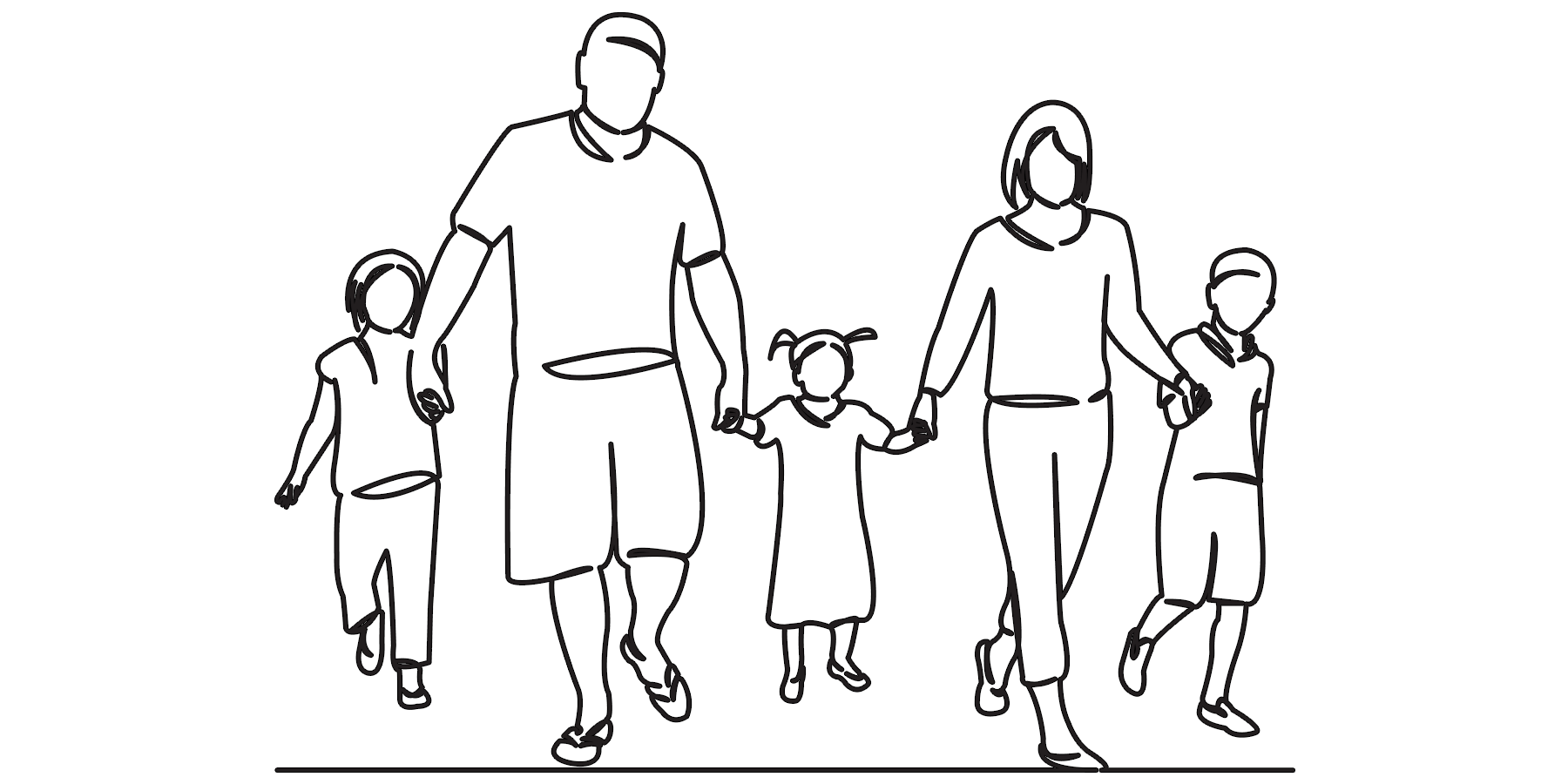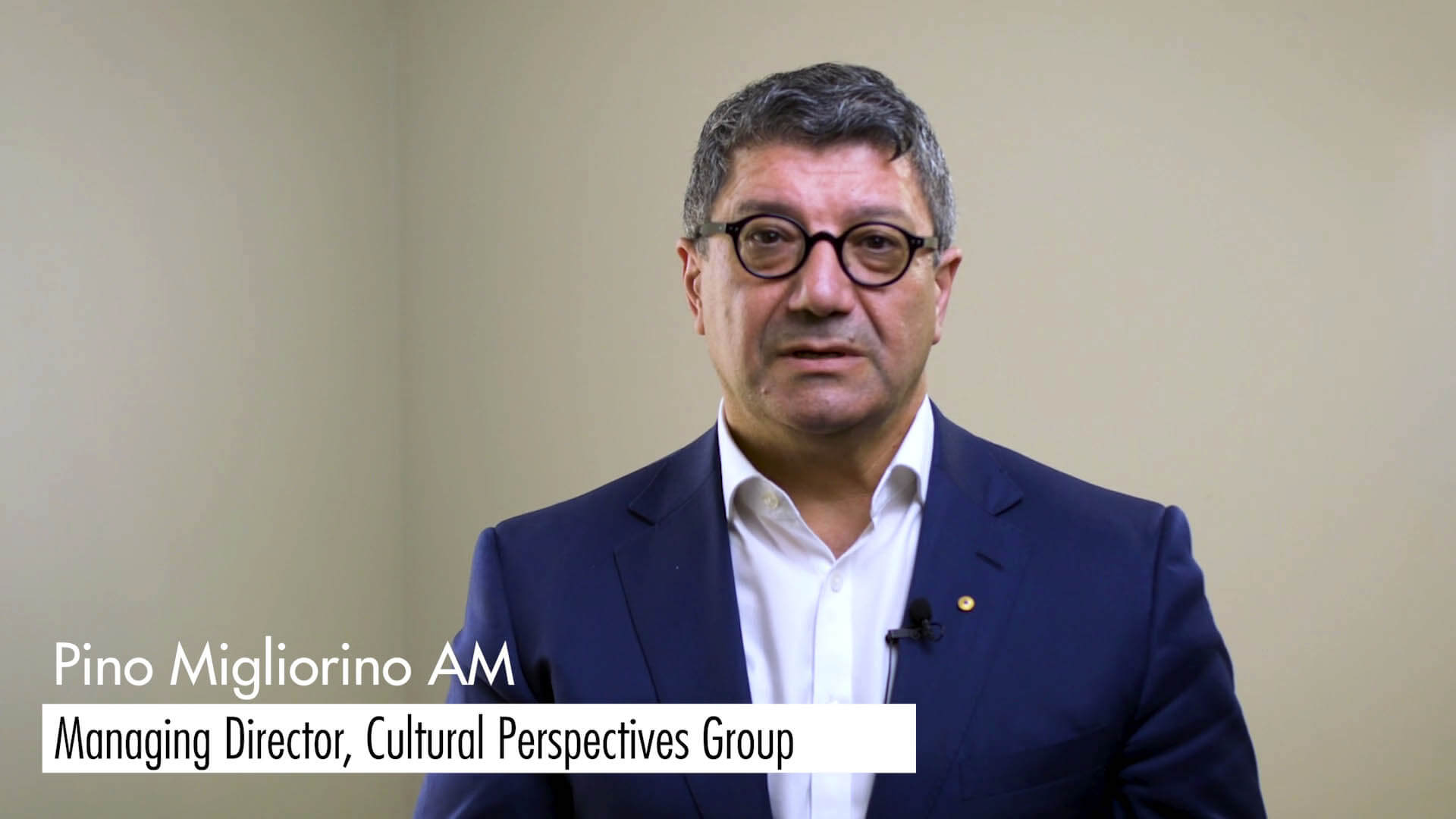Depending on your role, and the organisation or service you are part of, there may be a number of opportunities to engage in discussions with men from migrant and refugee backgrounds about their current or future roles as new fathers and partners.
In some circumstances, it may be more appropriate to have an informal conversation, whereas in other settings a more structured approach would be suitable.
What to consider
Language
- Does the person speak English?
- If not, do you speak the same language as the person, and are you confident enough in your own language skills to be able to discuss sensitive topics?
- Alternatively, consider engaging an interpreter. If you are part of a generalist organisation or service, you may already be working with interpreters to support your communication with people from migrant and refugee backgrounds.
- If you require interpreting assistance to communicate with the person, make sure you know how to access interpreters and how to work with them.
- Note that some individuals will hesitate to communicate via an interpreter, particularly in small, tight-knit communities, where the interpreter and the individual may be known to each other. In such circumstances, it is preferable to work with a telephone interpreter.
- Children should never be used as interpreters. Do not ask children or men’s partners to interpret for you.
- Consider your listening skills and using strength-based rather than deficit-based language.
Time
- Do you regularly engage with the same man from a migrant or refugee background who is a new or expectant father?
- Or, is it a one-off interaction that is unlikely to be repeated?
- How much time do you and the father have available?
- Consider what is more suitable – to engage in a brief discussion and refer the individual to the App (one-off engagement) or to engage in a more structured conversation, refer the individual to the App, and have a follow up (recurring engagement).
Self-reflection/reflexivity
- Consider your own viewpoints, biases and values.
- Consider how your background and environment have influenced your attitudes to fatherhood and respectful relationships.
- Consider your professional training and capacity to discuss family violence and other issues. Be aware of the risk of collusion and other intervention-related risks that specialised services are better placed to manage.[1]
Ideas for conversations
Depending on the settings and circumstances of the engagement, there are opportunities to start the conversation with men from migrant and refugee backgrounds about various aspects of fatherhood. These suggested ideas can be tailored to either an informal conversation or a more structured discussion with new and expectant fathers from migrant and refugee backgrounds to enable their understanding of:
-
The similarities and differences between the expectations of parenting and fathering across cultures.
-
The tools that can help them to manage change in their lives.
-
The role that they would like to play as fathers and if this is different from family or community expectation.
-
The opportunities to become more involved in the raising of their child.
The similarities and differences between the expectations of parenting and fathering across cultures.
The tools that can help them to manage change in their lives.
The role that they would like to play as fathers and if this is different from family or community expectation.
The opportunities to become more involved in the raising of their child.
These suggested topics are based on the workshop/engagement ideas from: Dad Central Ontario, Fathers in a New Land: A Workshop from the My Dad Matters Toolkit (2015) and have been adapted with permission.
Each conversation idea is framed to take up no longer than 10-15 minutes.

Idea 1: Comparing fathering approaches across cultures
There are differences and similarities in parenting when comparing different countries, cultures or religions.
- Consider raising the difference of the approaches and the similarities in parenting in Australia, and the role of culture, religion or language (mainstream Australian vs strongly culturally embedded/culturally specific roles).
- Ask the father what is unique about parenting to their culture or country of origin.
- Ask what they have observed as unique, in their view, about parenting in Australia.
- Discuss what stands out for them about the similarities and differences in parenting. Were there any surprises? Did they learn something about parenting in their own culture and in Australia?
- Focus on the shared approaches.
Option: If the settings and circumstances are appropriate, and to help you visualise the conversation, consider using a Venn Diagram approach—two intersecting circles to identify common points. Reflect on the unique approaches to parenting in their culture/country, and what they have observed as unique in Australia in the circles. Discuss the similarities that can be ‘placed’ in the overlapping circles.

Idea 2: Managing change
While becoming a father is a transformational experience in itself, for recently settled men, migration to Australia may have also brought many changes to their family structure and dynamics. Some things that change will be good and helpful. Other changes will be more difficult to manage. It is useful for new and expectant fathers to take some time to reflect on the expectations they had and how they have been managing the transition for the family. They will notice changes in their relationship with their partner and, for those who are already fathers, with their children. There will also be different sources of support or opportunities in Australia, and how they are dealing with the change within themselves, may be different.
- Consider discussing the changes that occurred in their family relationships and their roles as current or expectant fathers since moving to Australia/since becoming a new or expectant father.
- Suggest looking at changes in their relationship with their partners, their relationship with their children, and changes within themselves (e.g. emotions, reactions). Ask the father to share some things that they notice have changed.
- Ask the father about the strategies they already use to manage change and share some ideas that can help with adjusting to new things:
Be aware of the losses that come with the change. For example, leaving your home country can mean losing position in a community, a home, family support, and more. Becoming a father can mean spending less time with friends or changing work/hobby routines. Things are not the same as they used to be.
Accept that change touches a lot of things, including our relationships, our emotions, and how we manage day-to-day activities.
Keep focused on the reason for the change. Remind yourself why you made this decision. This is a new opportunity that you can make the most of.
Keep check on reality. What truth can you tell yourself (this will pass, we will get through this, we can get help)?
Talk about the change and how it is affecting you. Talk with your wife/partner or find a trusted friend or support worker.
Look after yourself. Eat right, exercise and get a good amount of sleep.
Expect to feel different: depression, anxiety, confusion, joy. If it seems like your emotions are confusing or out of control, talk to a doctor or social worker.
Look for ways you can grow and change yourself. What can you learn about yourself?
Take your time. Give you and your family some time to adjust.

Idea 3: Being involved as a parent
Sometimes fathers may be unclear about their roles as a parent, the expectations of parenting practices in Australia, and how they can be involved with their children. There are expectations about parenting that are unique to Australia.
Consider discussing some or all of these parenting practices and how they are similar or different to the father’s own parenting approaches:
Care/Nurture: Provide what is necessary for your child to grow and be healthy.
Supervision/Protection: Be aware of where your child/children are, what they are doing, who they are with. With young children that means staying in the same room with them and keeping them in eyesight. With older children (8 and up) it means knowing where they are, what time they should be home from school, who their friends are, etc.
Structure/Limits: Set clear limits with children. Enforce them in gentle, loving ways that help a child learn to make good choices. These limits will change as your child gets older and more independent.
Independence: Becoming independent encourages children to try new things and gain confidence in what they are able to do. It also helps prepare them for child care and school. It is important to encourage children to grow independence as they develop, knowing what your child is able to do and not do depending on their age and abilities, including: going to the bathroom with little or no help; washing hands; telling others their full name; crossing the street safely with an adult; eating by themselves; being able to share and take turns; telling others about things they have done; and dressing themselves.
Respect: Enforce limits in gentle and caring ways. Use consequences that make sense to the child and encourage them to make a different choice next time. Be respectful, but not to the point of always giving in.
Positive discipline: There are many different views on discipline around the world. In Australia, there is a noted difference between ‘positive discipline’ and ‘punishment’. Positive discipline supports children to make good choices in a respectful, caring way.
Socialisation: Children learn to relate by being with other people. This includes people in their family, like their father, their mum, their siblings, grandparents, etc. It also includes neighbours, childcare or school friends, teachers, and other adults. Children can learn to relate with other people by getting along with other children and getting along with adults (e.g. going to a father’s group, playdate, role modelling good communication skills within their family).
Discussion with children: Children learn a lot through the ways their fathers speak with them. The best learning happens when fathers are sharing their experiences, talking about what is happening around them, and taking time to listen to what their children are saying. Talking to children from birth during regular routines is a helpful way for them to learn and bond with their father. Suggest some routines as good opportunities for talking to children, including: when doing housework; shopping for groceries; preparing a meal and eating; doing a bedtime routine.

[1] See North West Metropolitan Region Primary Care Partnerships, Guidelines for Identifying and Responding to People Who Cause Family Violence Harm (April 2018)
Download this page as a fact sheet
PDF format
Microsoft Word format

